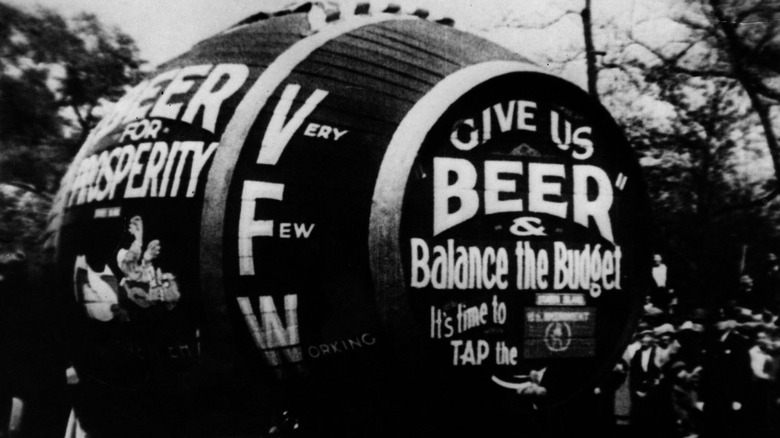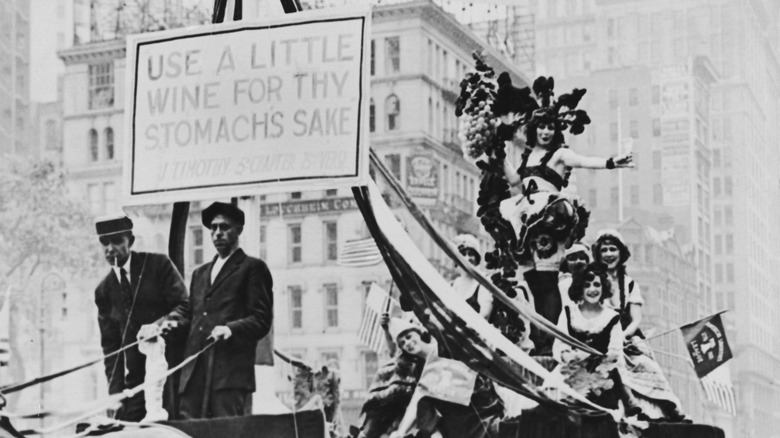What Really Happened If You Were Caught Drinking Alcohol During Prohibition
If you're the type of person who enjoys relaxing with a bottle of beer, a glass of whiskey, or just about any other type of alcoholic beverage that suits your fancy, then you may think the 1920s weren't that much fun at all. That, after all, was the decade of Prohibition, which came after years upon years of campaigns from teetotaler groups who felt America was getting way too drunk for its own good. As noted by History, World War I-era xenophobia was another factor that led to Prohibition becoming law through the 18th Amendment, as anti-alcohol lawmakers felt that the country's most "treacherous" German enemies weren't found on the battlefields, but rather in the brewing industry.
Then again, there is a reason why the Roaring Twenties were known as such, and that was because many people found ways to get wasted one way or another. Thousands of speakeasies across the U.S. sold booze under the table, businesses found myriad workarounds that allowed them to legally sell alcohol, and bootleggers created their own homemade liquor, which largely turned out to be unsafe, and sometimes even fatal to those who consumed it. But what happened to average consumers who were somehow able to keep drinking despite the enforcement of Prohibition? Were they punished if they were caught drinking alcohol, and if so, what was the penalty? Fortunately, we have the answers to those questions.
Consuming alcohol was not illegal during Prohibition
As pointed out by History, there was nothing illegal about consuming alcohol during Prohibition, as the 18th Amendment only banned the "manufacture, sale, and transportation of intoxicating liquors." That meant if you had enough booze stockpiled at home as of January 1920, you were free to consume that liquor. Of course, most Americans didn't have enough alcohol to tide them over, even for the first few weeks of Prohibition, but there were people from the upper crust of society who took more extreme measures to ensure they could keep drinking legally for a long, long time. Some of them simply built huge wine cellars, but a few went as far as to buy the entire inventory from liquor stores.
In addition, those who lived in certain parts of the U.S. had it better than others when it came to Prohibition laws, or lack thereof. New York, for instance, repealed its anti-alcohol laws in 1923, while Maryland never enforced any to begin with. Then you had the aforementioned loopholes that businesses and their customers took advantage of — if you were a man of the cloth, you could purchase wine for religious purposes, and if you had a physician's prescription, you could drop by the drug store and buy some "medicinal whiskey."
On the other hand, there was one major caveat to all of this. According to Britannica, alcohol became much more expensive during Prohibition and was usually out of the price range of the average working-class consumer.

